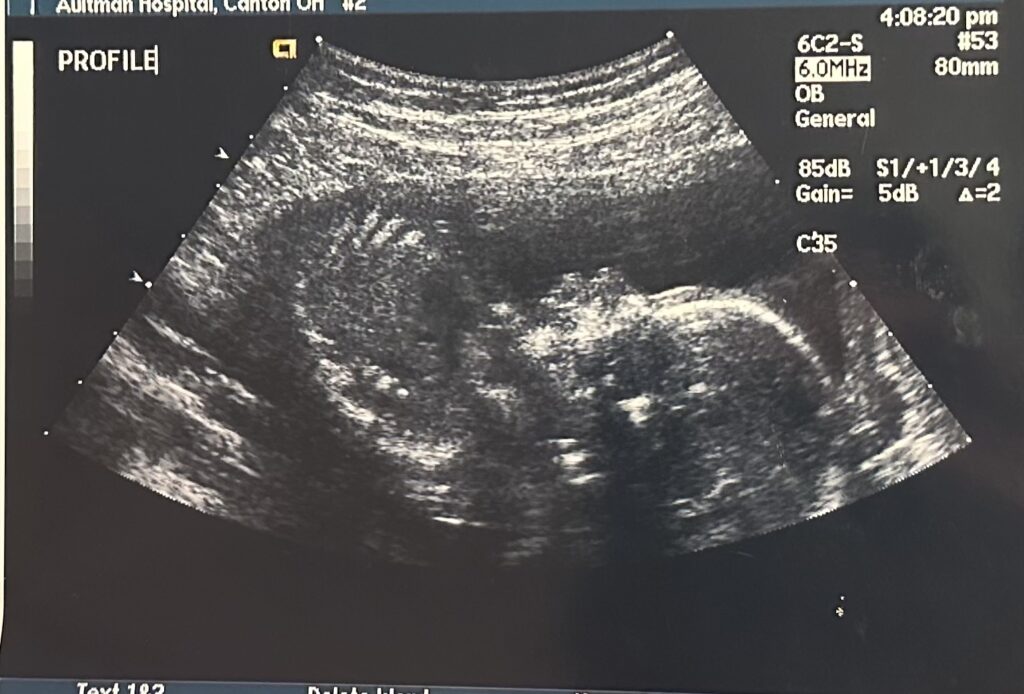
Recent study shows lower rates of postpartum depression, anxiety from prenatal interventions
Postpartum depression is a factor in 20% of all maternal deaths.
Postpartum depression affects the mother directly after birth. This can include extreme feelings of sadness and anxiety. Mothers experiencing this lose a lot of sleep and can be very irritable.
According to the Cleveland Clinic, 75% of moms experience baby blues and 15% of those develop postpartum depression.
Jessica Dawn Beardsley experienced postpartum depression for three to six months after having her child in high school. She said she experienced the main symptoms including many negative thoughts.
“I had thoughts like, ‘how could I actually care for this child,’” Beardsley said. “It didn’t feel fair because I did not know why God would do this to me.”
Since Beardsley had her child at a very young age, she mentioned that postpartum depression was not a big thing to her family and her doctors. Because of this she was never diagnosed. “I just dealt with it and over time it subsided,” Beardsley said. She feels that if she were more mature maybe the doctors would have discussed it more with her.
“I just dealt with it and over time it subsided.”
Jessica Dawn Beardsley
There are many ways mothers attempt to defeat these symptoms. However, most of the options are provided post birth, once the mother begins to notice the symptoms.
Recent study shows that intervention done during pregnancy can reduce the likelihood of developing postpartum anxiety and depression by more than 70%.
The study was conducted in the Punjab Province of Pakistan between April 2019 and Jan. 2022. It was led by Pamela J. Surkan, Ph.D., Sc.D., of Johns Hopkins Bloomberg School of Public Health in Baltimore.
This study gave 375 women routine pregnancy care and 380 cognitive behavioral therapy interventions called Happy Mother-Healthy Baby. The women selected had symptoms of at least mild anxiety when becoming pregnant.
The Happy Mother-Healthy Baby interventions gave intervention sessions to help the women identify any anxious thoughts they were beginning to have. This included thoughts about a possible miscarriage. The point was to replace the negative thoughts with more positive thoughts.
The people administering these sessions had no prior clinical experience, just a bachelors degree of some sort. This was done to show how even women in a low resource setting could get some type of help.
These interventions were split up throughout the pregnancy. There were six total. The first five took place early in the pregnancy and the last session was during the third trimester.
After six weeks of regular routine care for half of the women and six weeks of interventions for the other half, the results showed differences in the two methods.
Out of all the mothers who were placed in the cognitive behavioral therapy intervention group, only 9% developed moderate-to-severe anxiety, while 27% of the mothers in the routine care group developed the same anxiety.
41% of the mothers in the routine care group developed postpartum depression while only 12% of the women in the cognitive behavioral therapy intervention group developed postpartum depression.
This study shows that interventions during pregnancy, rather than only after, can be very beneficial for the mother.
Dr. Angela Neal-Barnett is a psychologist at Kent State University. Part of her studies include anxiety and depression in children and adults, mainly focusing on African Americans.
“When mothers do early intervention, it is likely to change the trajectory for the mother and infant post birth,” Neal-Barnett said.
Neal-Barnett mentioned that in some cases the effects of postpartum depression and anxiety are noticeable in the child, not just the mother. This brings another level of importance to helping mothers get through this.
“When mothers do early intervention, it is likely to change the trajectory for the mother and infant post birth.”
Angela Neal-Barnett
Mothers and Babies is a team of researchers who are a part of Northwestern University’s Institute for Public Health and Medicine. They found very similar results with their evaluation on interventions done during pregnancy.
The team did a clinical trial set up almost identically as the one done in Pakistan with very similar results. However, they analyzed the results of the interventions before the baby was born.
The results showed that the interventions reduced stress and depression symptoms in the patients.
Zoe Spencer is a new mom who experienced postpartum depression for three months after having her baby boy. She occasionally spoke to her general therapist during her pregnancy, but not frequently as she was labeled high risk. Because of this, she did not see any benefits
“If I were to have another child, I would love to try a new type of therapy for during and after my pregnancy,” Spencer said.
Another option to therapy is support groups. Whether they are in person and local or just online, talking to other mothers who are experiencing the same things can be beneficial and is considered a type of therapy. These meetings can be lead by professionals in the field.
Not only does therapy show benefits in the mothers life, but also in her friends and families.
“This clinical trial opens up a whole new avenue for more studies to be done,” Neal-Barnett said. “I am looking forward to others building on this study.”
With more research being done and more clinical trials being conducted, future mothers could be provided more options when it comes to prenatal and postnatal care. As the years pass by more things are becoming available.
“I am looking forward to others building on this study.”
Angela Neal-Barnett


